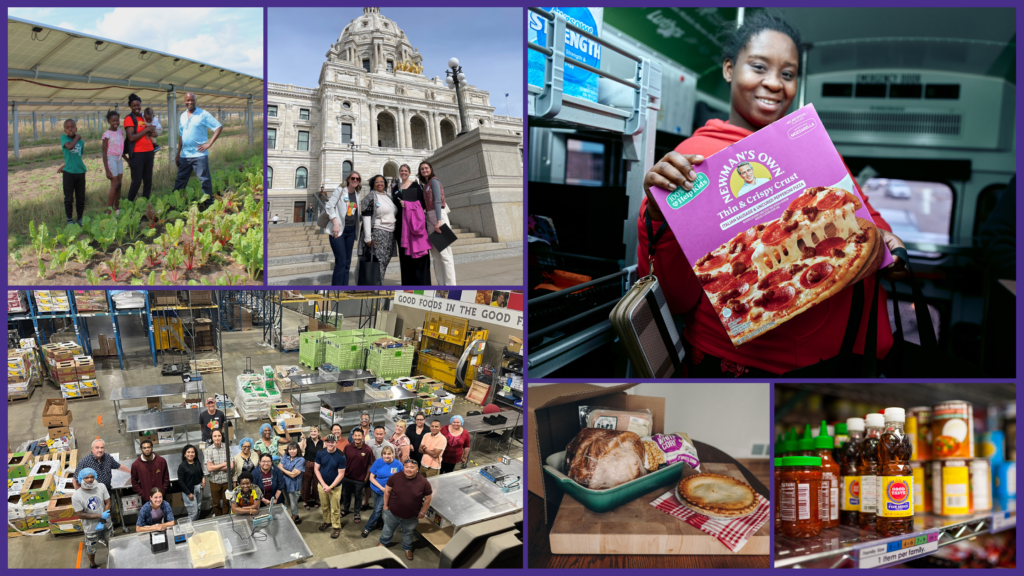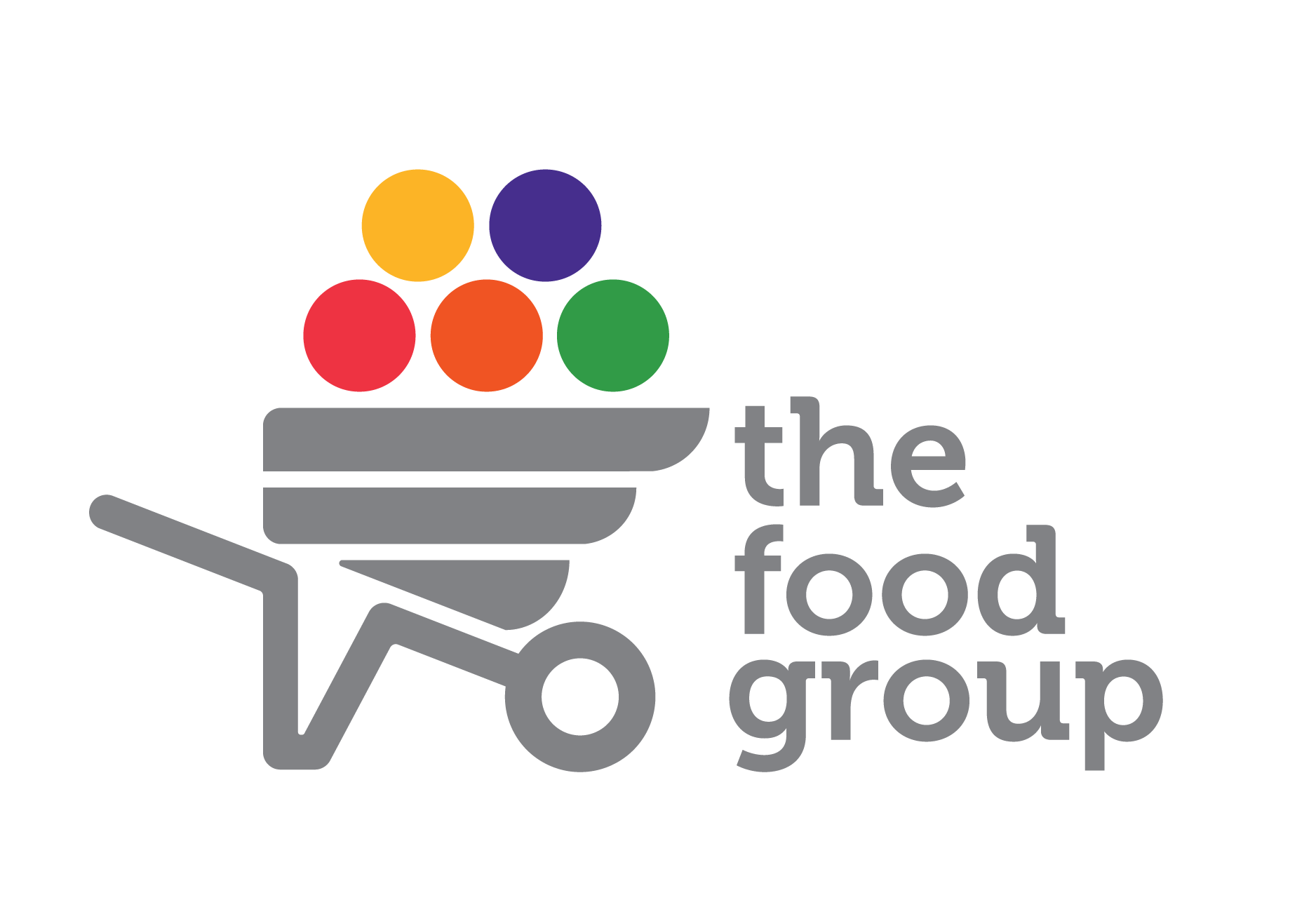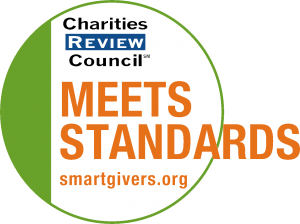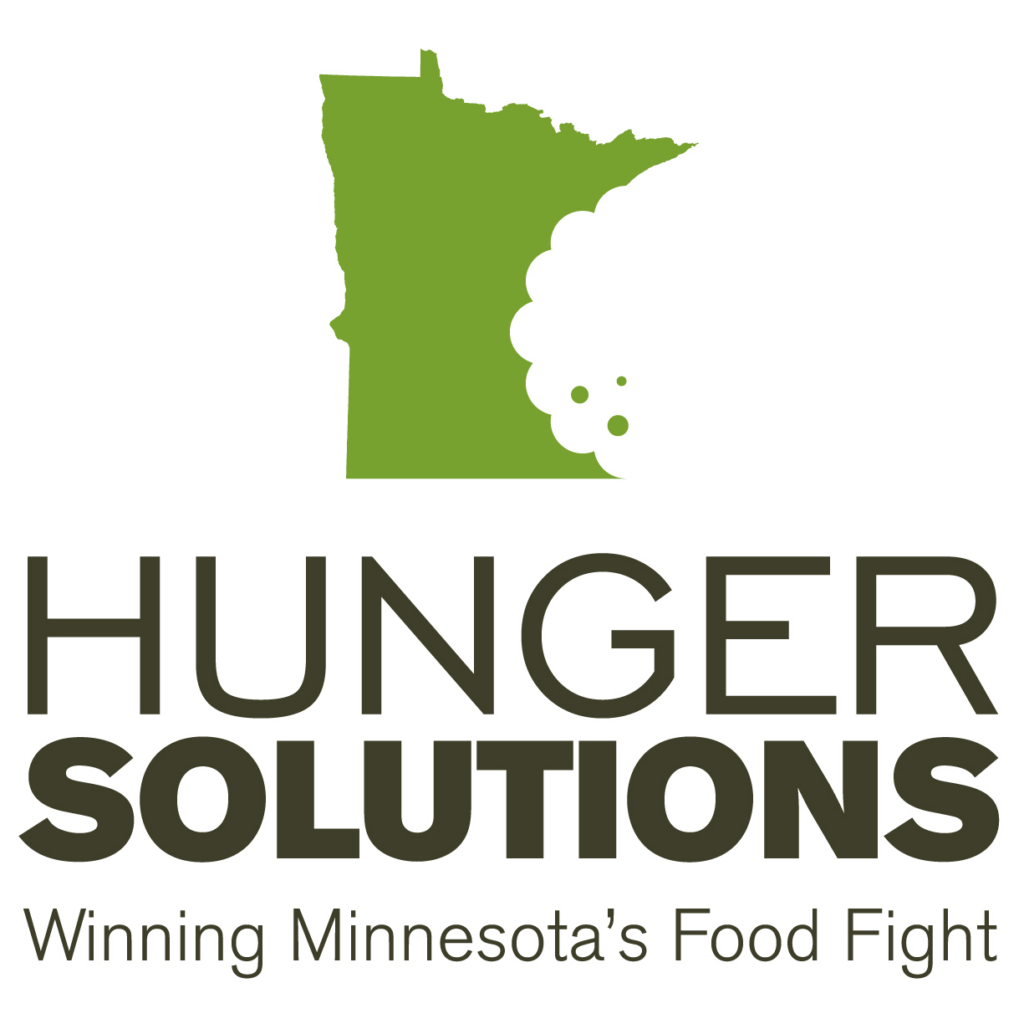As we enter a new year, our team at The Food Group has been taking a look at current trends and data to inform and educate our upcoming anti-hunger work. Here’s what we’re seeing when it comes to food access across our state as we kick off 2025, as well as some insights into the innovative partnerships we’ll be expanding upon in the year ahead.
Food shelf visits continue to rise in Minnesota. We don’t yet have final 2024 data but are on pace to hit nearly 9 million visits … which is an increase of more than 1 million visits from 2023 … which was an increase from the number of visits we saw in 2022. Since 2021, monthly visits to food shelves across our state have more than doubled.
And no demographic is left untouched by this troubling trend. Food shelf visits among all age groups are up, including seniors and children. Last year, senior food shelf visits increased by an estimated 12% for a total of 978,000 visits; compared to 2021-2023 data, this is an increase of 74% in total visits. Visits from children have also more than doubled, making up more than 2.6 million visits to food shelves in Minnesota in 2024, which is a 22% increase from 2023 numbers.
There are many reasons for these increases, including the end of pandemic support programs and high food prices due to inflation with income levels remaining stagnant, and food shelves across the state have done an incredible job responding to the changing needs of our communities. Here at The Food Group, we have responded by continuing our holistic food systems approach to anti-hunger initiatives, including advocacy work as well as affordable grocery and sustainable farming programs. We’ve also continued our crucial food distribution programs, making sure food shelves and meal program partners have what they need to serve our neighbors.

We also recognize that our core work is not enough to eliminate hunger in Minnesota, and we are innovating and thinking outside the box in our search for both short-term and long-term solutions – food for today and change for tomorrow. In 2025, we will continue to lean into our community of partners and cross-sector partnerships beyond traditional hunger relief.
Health Care Partnerships
For example: By getting people connected with SNAP support through the SNAP Rx program, pressure is taken off of emergency food systems. During routine health care visits, patients are screened for food insecurity and referred to our HelpLine staff, who then assist with applying for SNAP, locating a local food shelf or finding other food support. We receive referrals from more than 20 clinics and health systems per month, such as HealthPartners, Allina, and Children’s, and in 2023 our HelpLine staff received 3,925 referrals through SNAP Rx.
Another way we partner with health care organizations is by improving the accessibility of high-quality nutritious foods through our affordable grocery programs. An example: In our partnership with Fairview, physicians provide $80 monthly vouchers to patients who have been screened for food insecurity, which are redeemable at one of our more than 50 Twin Cities Mobile Market and Fare for All sites. There are many health care systems wanting to impact social determinants of health, but Fairview is truly putting this idea into action.
Housing Partnerships
We also partner with housing organizations to help get nutritious, high-quality food directly to where people live, primarily in high-density urban neighborhoods. Our Twin Cities Mobile Market program — our grocery store on wheels — works in collaboration with housing partners to provide a solution to supermarket redlining. In all, 26 of our 27 TCMM sites are located at affordable housing complexes, serving seniors and families with children.
School Partnerships
Children need access to healthy foods to learn and thrive, and many eat most of their meals at school. The monumental passing of Universal Free Meals in Minnesota schools led to an overall increase in kids eating meals at school last year at more than 150 million meals served. On average, the program saved families $1,000 per student. And through our sustainable farming programs, Big River Farms farmers are helping supply local produce in partnership with Minneapolis Public Schools’ Farm to School program, ensuring school meals are made up of nutritious foods.
Energy Partnerships
As we look ahead toward the long-term sustainability of our food supply, we are partnering with energy companies to brainstorm creative solutions to combat climate change and support emerging farmers in securing affordable farmland. Through our agrisolar pilot project with US Solar, located in Big Lake, participating farmers grow vegetables beneath and around solar panels, thus expanding land access for emerging farmers and creating more climate-smart local food systems. When we can, we also source from these farmers for food shelves and meal program partners.
Government Partnerships
The state government is another key partner in the work to fight hunger and nourish our community. We are in constant conversation with Minnesota agencies and lawmakers to ensure our public policies and practices promote an equitable food system, and we specifically work to ensure that our advocacy work elevates community voices to lawmakers. We do this by facilitating a lived experience cohort, made up of individuals who have lived experience with hunger, whose voices we rely on to influence our policy agenda. We also facilitate the Partners to End Hunger coalition, made up of nonprofits and partners in the hunger sector, who establish a shared agenda each year and advocate during Hunger Day on the Hill. One example of this recent advocacy work was our SNAP Challenge, in which we asked both individuals and lawmakers to experience what it’s like to eat on the minimum SNAP benefit budget of just over $5 per day for the three days leading up to Thanksgiving. This exercise built support for our advocacy efforts to increase the minimum benefit in the future.
Our food system encompasses so many sectors, and solving food access issues will continue to require a patchwork of partnerships and innovations to get us where we need to be. All of us need to work collaboratively to fight hunger and nourish our community, and we’re grateful to our partners for their continued support — support we look forward to expanding upon in 2025 and beyond.





You must be logged in to post a comment.